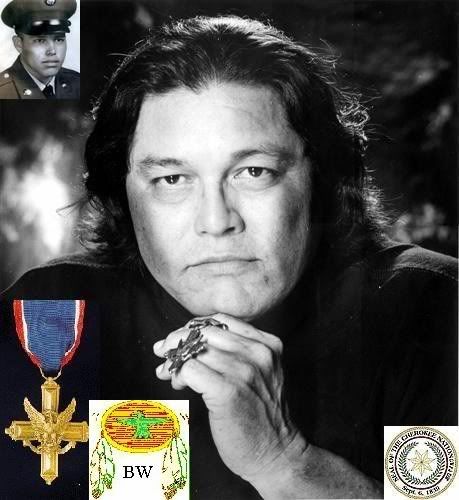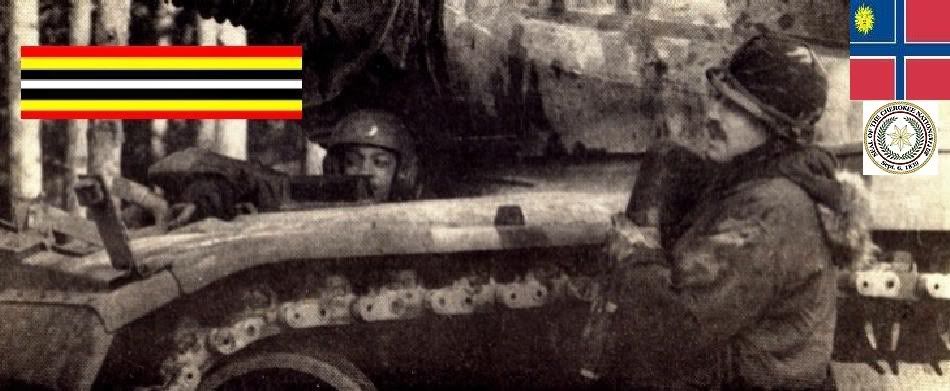|

United States Army Lieutenant Billy Walkabout
(1949-2007)
Warriors Citation
Walkabout received the Distinguished Service Cross, Purple Heart, five Silver Stars and five Bronze Stars. He was believed
to be the most decorated Native American soldier of the Vietnam War, according to U.S. Department of Defense reports. Walkabout
was born in Cherokee County, Okla. and lived much of his life in Oklahoma. At the time of his death, Walkabout and his wife,
Juanita Medbury-Walkabout, lived in a portion of eastern Connecticut that is home to many Mashantucket Pequot, Mohegan and
other Native American tribal members. Walkabout's official cause of death was not given. The Native American Times reported
on its website that he had been fighting complications of exposure to Agent Orange, a defoliant used by the military during
the Vietnam conflict. Walkabout, a Cherokee of the Blue Holley Clan, was an 18-year-old Army Ranger sergeant when he and 12
other warriors were sent on an assassination mission behind enemy lines on Nov. 20, 1968, in a region southwest of Hue. However,
they ended up in the enemy's battalion area and came under fire for hours, during which he was seriously wounded. Several
of the other 12 men were killed at the scene, while the rest later died of their injuries.

Walkabout's citation for the Distinguished Service Cross said he simultaneously returned fire, helped his comrades and boarded
other injured soldiers onto evacuation helicopters. "Although stunned and wounded by the blast, Sgt. Walkabout rushed from
man to man administering first aid, bandaging one warrior's severe chest wound and reviving another soldier by heart massage,"
the citation states. "Only when the casualties had been evacuated and friendly reinforcements had arrived, did he allow himself
to be evacuated." He retired as a second lieutenant. In a 1986 interview with The Associated Press, Walkabout said his 23
months in Vietnam left him with disabling injuries and memories that refused to fade. "War is not hell," Walkabout said. "It's
worse." He said he struggled with failed marriages, thoughts of suicide and years of self-isolation when he would spend six
months at a time alone. "Everyone I went to high school with thought I was dead for years. They're amazed when they see me
and they say, 'You're not dead."' Walkabout said. He often refused to sleep near his wife, afraid he would strangle her in
his sleep or try to push her under the bed to protect her from the bombs he imagined were going off. Over the years, however,
he found solace in the Native American powwows where he often was an honored guest, leading the traditional dances in time
to the pounding drums and chant of the singers. "I'm at peace with myself," Walkabout said in 1986. "I've got my dignity and
I've got my pride. ... I never lost the war in Vietnam, I never lost a day of it. Even when I was wounded, I didn't lose.
When I fought, I won. I won my wars." Walkabout's family and friends tended a round-the-clock fire in Montville after his
death on Wednesday and planned to extinguish it Sunday, part of a four-day Cherokee ceremony, family members said. The smoke
fire is believed to carry prayers to heaven and spiritual messages from place to place around the world. Lisa Bernier, Walkabout's
stepdaughter, told The Day of New London newspaper that he was unpretentious when asked about his time in the military. "I'd
say 'thank you' to him, and he'd say, 'What for?' He was so humble," Bernier said. From: historical accounts & records



LINK TO BRAVEHORSE WARRIORS VOLUME TWO
|

